Upper abdominal pain can be no big deal—or it can merit a trip to the ER. Here’s how experts say you can tell the difference.
If it’s accompanied by sweating

“Pain associated with sweating is always an indication of something bad,” says Cwanza A. Pinckney, MD, an emergency physician at CHI St. Luke’s Hospital in Houston, Texas. “Sweating is a clinical indicator that the body is under stress and that the bodies flight or fight system is activated and the body is in distress. This is an ER physician’s red flag for danger, even if symptoms seem vague or mild. Sweating and abdominal pain warrant further evaluation by an emergency provider.” Discover seven reasons for abdominal pain that could signal a more serious condition.
If blood is present
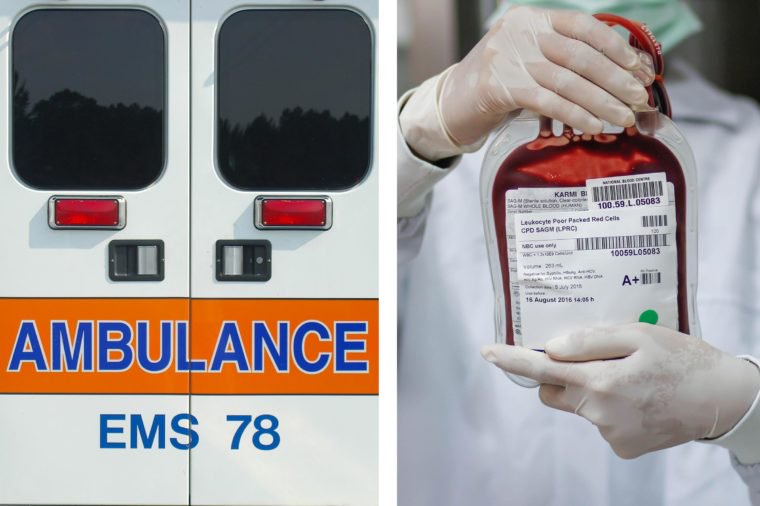
“Seeing blood coming from above—vomiting—or below, as in stools is a bad sign,” says Samantha Nazareth, MD, a double board-certified gastroenterologist in New York City. “It is important to note that blood can present as both red and black.”
The pain radiates to another part of your body

Pain that isn’t contained to a specific part of the body could indicate something serious. “Radiation up to the neck, left shoulder, or left arm may indicate a potential heart attack,” says Tony Yuan, associate medical director at Doctor On Demand. “Radiation to the back may indicate inflammation of the pancreas or an ulcer.” Check out the seven silent signs of a heart attack.
You have a high fever
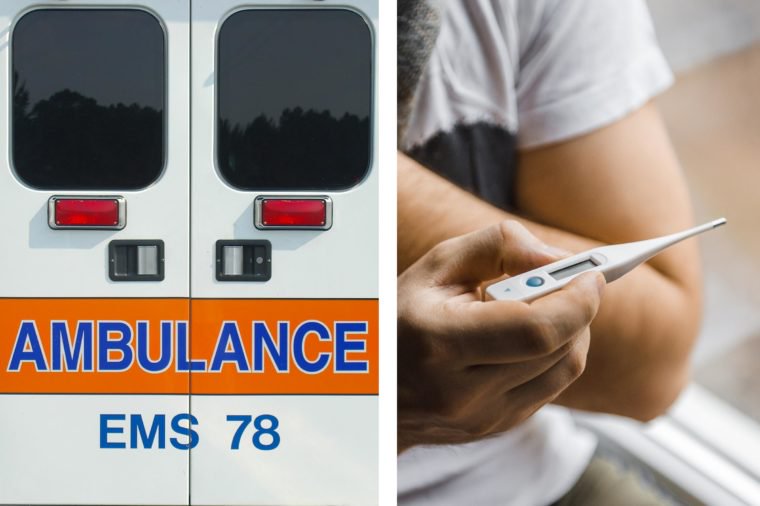
Pain that’s accompanied by a fever can be difficult to diagnose. “Fevers are a sign of possible infection, and, while some infections are serious, some, like stomach viruses can be milder and are not of serious concern,” says Jaclyn Kline, MD, attending physician, Division of Emergency Medicine at the Children’s National Health System. “Stomach viruses often cause intermittent abdominal pain, vomiting, and diarrhea. The best treatment for this is drinking fluids to stay hydrated while the virus runs its course. If you have a high fever—higher than 102 F—with severe upper abdominal pain, you may have a more serious infection, and you should be concerned enough to see a doctor.” These are the things you must do right away for stomach pain in the morning.
If it’s a tearing pain
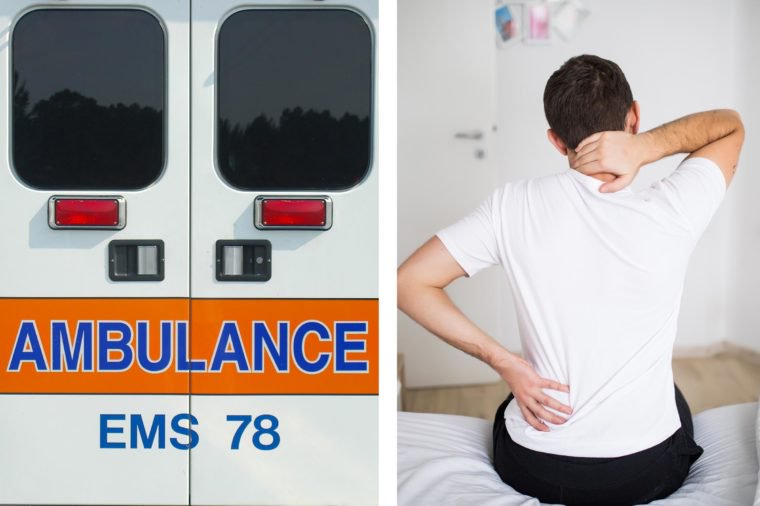
“Tearing or ripping pain that feels like it is moving to the back is a warning sign for an aortic dissection which is a tear in the large artery that takes blood filled with oxygen to the rest of the body,” Dr. Pinckney says. “Without quick diagnosis and intervention, an aortic dissection can cause disability and in many cases death.”
If you can’t get relief
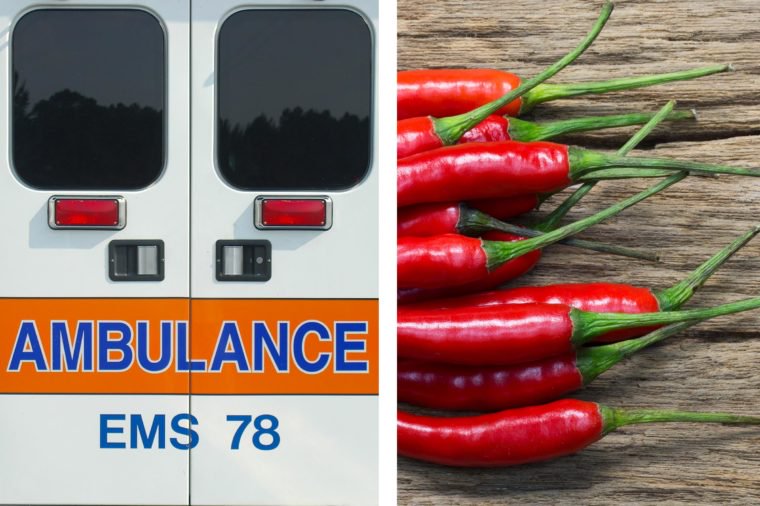
Acid reflux is a common cause of pain—give over-the-counter medications to see if they help. “If the pain is milder and seems to occur after eating, particularly after eating a larger meal or foods like chocolate, coffee, or spicy foods, it may be heartburn and could be treated at home,” Dr. Kline says. “The pain from heartburn can be strong, but if it goes away with antacid medications, you should be reassured. If you notice that certain foods seem to make you feel pain, you should avoid them.” You may want to try some of these home remedies for heartburn.
Your medical history is worrisome
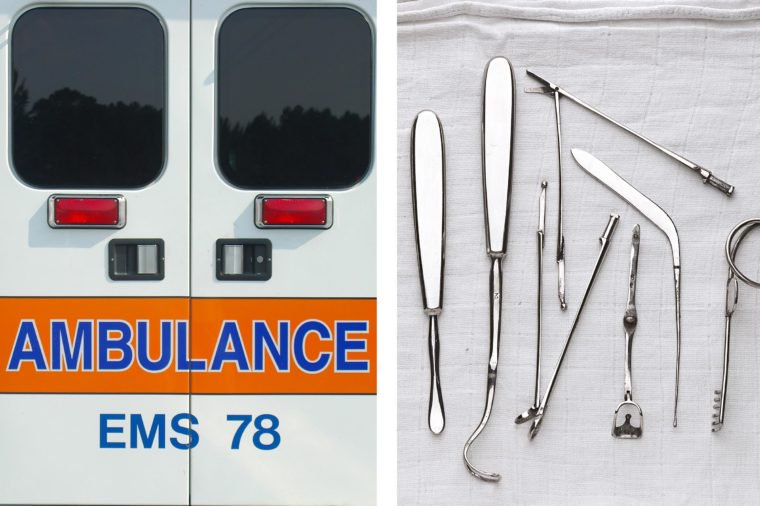
Depending on your health history, a “just-in-case” trip to the ER for any abdominal pain could be in order. “Patients who have a history of heart disease, diabetes, aneurysms, abdominal surgeries, traumatic injury, or past GI bleeding should have upper abdominal pain evaluated by their physician or an emergency physician,” says Rema S. Johnson, DO, assistant medical director, Emergency Services at AMITA Health St. Alexius Medical Center in Hoffman Estates, Illinois. And don’t wait, she stresses: “A life-threatening condition could be developing,”
You’re short of breath

“Shortness of breath or feeling faint are warning signs that a patient should be evaluated ASAP,” Dr. Nazareth says. Breathlessness could indicate cardiac trouble or other deadly conditions. Learn some effective ways to combat shortness of breath.
You’re vomiting—regularly
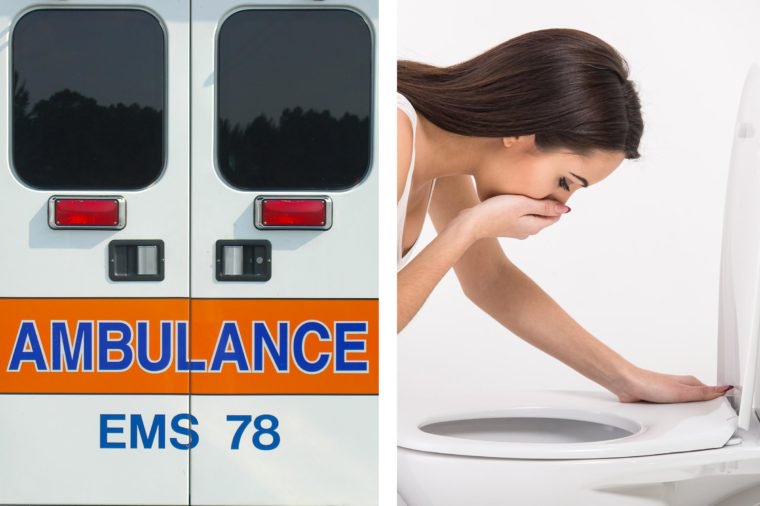
Vomiting could put you at risk of dehydration, but it can also indicate a more serious problem. “If the pain is accompanied by persistent vomiting, it could indicate an intestinal blockage,” Dr. Yuan says.
If you’re elderly
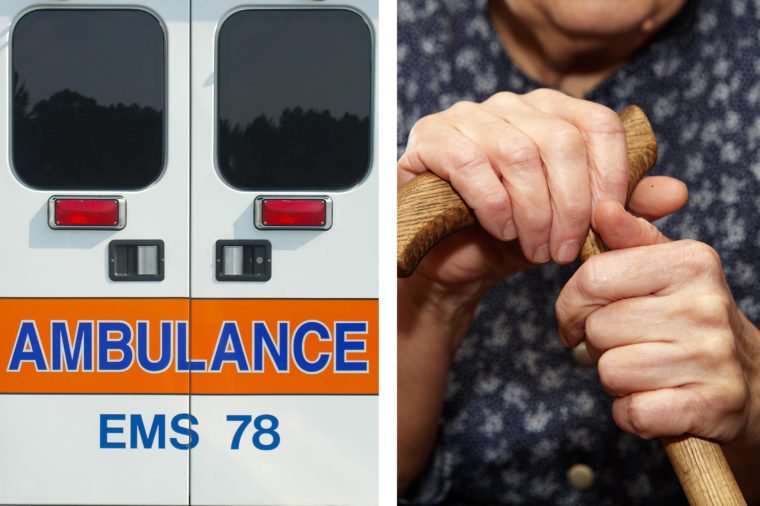
“If the patient is elderly, they should consider that the upper abdominal pain may be the presentation of heart symptoms,” Dr. Johnson says. If you’re at that age—or caring for an elderly parent—here are some tips on managing senior care.
If your skin turns yellow

A yellowing of your skin can signal a serious issue with your liver and gallbladder. “Many patients will describe a deep and severe pain in the upper abdomen which radiates to the right side within an hour or two of eating,” Dr. Pinckney says. “Most gallbladder problems can be resolved by removal, but if the gallbladder becomes blocked, infected, or inflamed there is an emergent risk of liver damage, severe abdominal infections, and jaundice or yellowing of the skin.” Here are some other potential causes of jaundice.
If you don’t know what triggered it
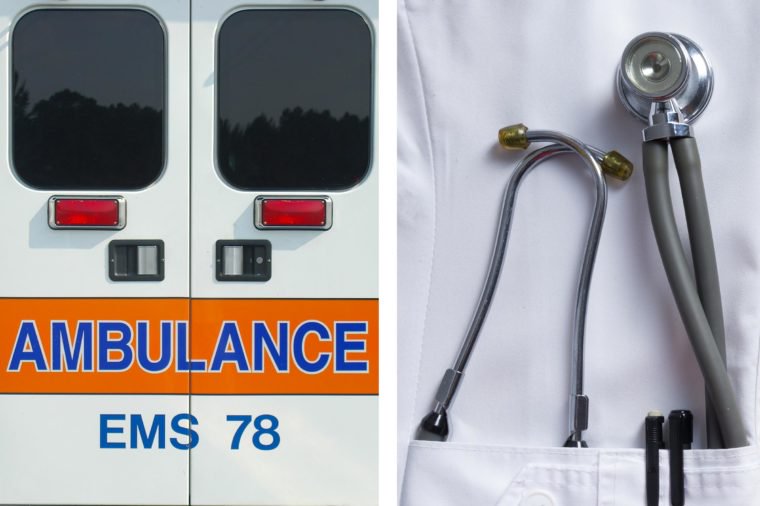
Many times, you can point to the cause of pain—eating certain foods or a stomach virus that’s going around. But if you can’t, it’s definitely time to see the doctor. “Think about what you may have had to provoke the pain—alcohol, spicy foods, fatty foods,” Dr. Johnson says. “Seek medical care if the symptoms are not resolving.”
You’re diabetic
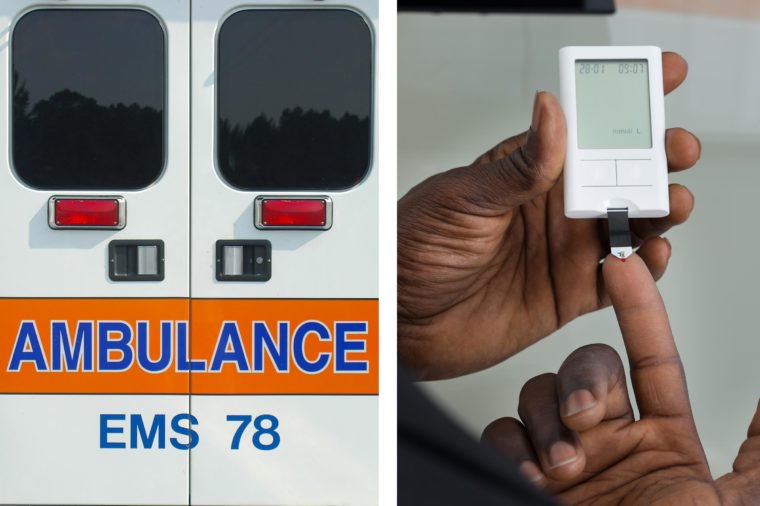
“If you are having upper abdominal pain or discomfort and are diabetic, you could be having what’s known as a silent heart attack,” says Dr. Pinckney. “Many diabetics suffer from various forms of poor nerve function, and this is also true regarding nerves that supply the chest. Upper abdominal pain in a diabetic person is considered an equivalent to active chest pain in a nondiabetic and should be evaluated immediately.” Watch for these other diabetes complications.
If you develop extreme pain right after you eat or drink alcohol
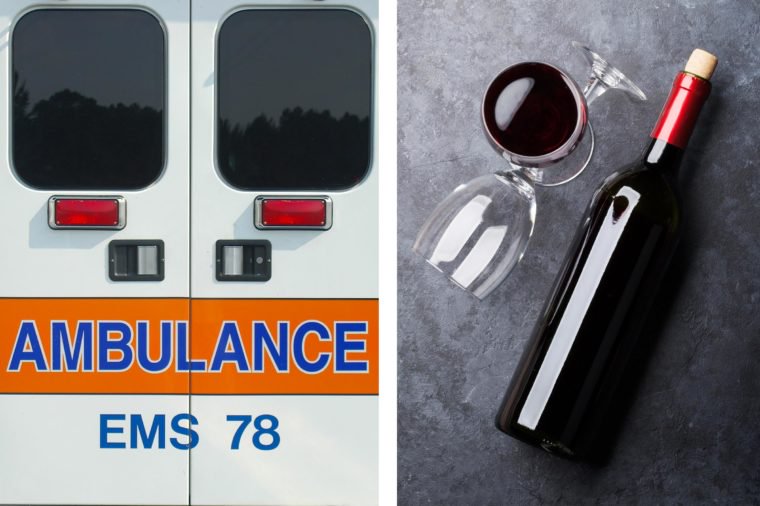
“Pancreatitis, which is the inflammation of a small organ just above the stomach, can cause severe upper abdominal pain after eating,” Dr. Pinckney says. “Pancreatitis can be caused by gallstones, alcoholism, or for no certain cause but it’s described by patients as a deep and unbearable pain worsened by food or alcohol. Pancreatitis if left untreated can lead to severe disability and death.”
It keeps getting worse

Any abdominal pain should start easing up after a few days. If it doesn’t, it’s time to see the doctor. “Pain that does not resolve or is worsening should be evaluated regardless of the patient’s past medical history,” Dr. Johnson says.
Don’t miss these things your stomach is trying to tell you.
Source: RD




















































